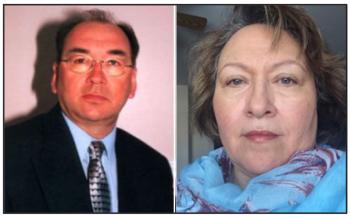Image Caption
Summary
Local Journalism Initiative Reporter
Windspeaker.com
As the foundation is laid for work to begin on the Legacy Fund, which is part of the McLean Day School Settlement Agreement, plaintiff Margaret Swan knows intimately how part of that $200 million must be spent.
“There needs to be some type of healing strategy to help First Nations youth deal with their traumas, our traumas from the past, and specifically at this point targeting the addictions epidemic,” she said.
Swan, along with the late Garry McLean (lead plaintiff for whom the settlement is named), Roger Augustine, Claudette Commanda, Angela Elizabeth Simone Sampson and Mariette Buckshot started a legal action in November 2009 against the federal government. They sought compensation and other benefits for students who attended federal Indian day schools. Since the 1920s, close to 200,000 Indigenous children attended those schools.
An out-of-court settlement was reached and took effect Jan. 13, 2020. Payments have begun to be issued and claims are being processed. Payments range from the basic $10,000 per individual to additional compensation for incidents of physical and sexual abuse, with amounts ranging from $50,000 to $200,000 based on the severity of the abuses suffered.
Swan, however, has yet to file her claim. She says she’s immobilized by tragedy a second time in the settlement process which underscores her desire to see the Legacy Fund focus on youth and addictions.
When McLean approached her in 2015 to sign an affidavit for a fresh Statement of Claim to move the class action along “I was so stuck … I lost my 29-year-old son to what they said was an accidental methadone drug overdose that he got from a so-called friend who probably struggled with addictions for a number of years as well.
“So when it came down to the day school stuff I was so caught up in my own grief that I felt I wasn’t ready to even do the affidavit. Had Garry McLean not come to my house and sit with me as my brother, I would probably have kept stalling because I was so caught up in the grief of the loss of my son,” said Swan.
“August 2020 I lost another son. This time it was an accidental fentanyl overdose. And now again I’m not ready to talk about my day school trauma because I’m still working on my grief and other things and I’m not ready to fill out my day school claim. Eventually I’ll get there. Right now, I’m dealing with emotional trauma of losing my son.”
Also holding her back is her commitment to wait until she is certain that survivors are treated “with respect and fairness when they’re going through this process” of making their claims. It’s crucial, says Swan, that the right mental health supports be available to help survivors deal with the trauma of day school. So far, she has heard it’s “going pretty okay.”
Claimants have until July 13, 2022 to apply for compensation, with a six-month extension available upon request.
Meanwhile, work is ramping up on what the Legacy Fund will look like.
“(It) has taken quite a bit of time for us to feel comfortable that we now have a solid foundation to move forward in doing an outreach program,” said Dr. James Igloliorte, a retired judge and one of three directors of the McLean Day Schools Settlement Corporation (MDSSC).
Igloliorte, along with plaintiffs Commanda and Augustine, had their positions as directors on the MDSSC approved by the court as part of the settlement agreement. They are at the midway point of their four-year mandate.
Measures to combat the coronavirus pandemic have played a role in delaying work on consulting with survivors and their families on the operation and administration of the Legacy Fund.
Virtual town halls will be rolled out soon, says Igloliorte, when protocols are established with the legal team.
Reaching people virtually is not ideal, he admits, but it’s the only option available right now.
“The plan is indeed to have a system of being able to move across the country, gather information, speak to survivors to hear their stories and, most importantly, get their recommendations on how they want to see the Legacy Fund rolled out and shaped over time,” said Igloliorte.
Part of that system will include ensuring cultural, spiritual and linguistic support is readily available during the outreach process.
Swan has concerns about the virtual reach-out and sees her role as ensuring people are heard.
“You just try and include and inform everyone as much as you can to get their feedback in order to make something that’s actually going to incorporate what people are telling you may work. And I would expect no less than this with Legacy Fund board,” she said.
Swan would like to see money flow from the Legacy Fund for programs “probably the sooner the better, but the reality is it has to be done right.”
According to the settlement agreement, the board of directors will grow by two to equal five for the Legacy Fund. The directors will be guided by an advisory committee consisting of nine to 12 members, representative of Indigenous survivors and their families. The advisory committee is to be appointed by the directors.
Igloliorte anticipates using the outreach program and community contacts to get the additional members.
“I didn't know Mr. McLean, but I understand that his sense of humor, his optimism and his view that we can set things right means that we should approach our work deliberately with a clear vision and that takes time,” said Igloliorte.
In response to the COVID-19 pandemic, the MDSSC altered some of the financial arrangements with the Legacy Fund in order to ensure its preservation and growth through a short-term investment strategy.
Local Journalism Initiative Reporters are supported by a financial contribution made by the Government of Canada.

